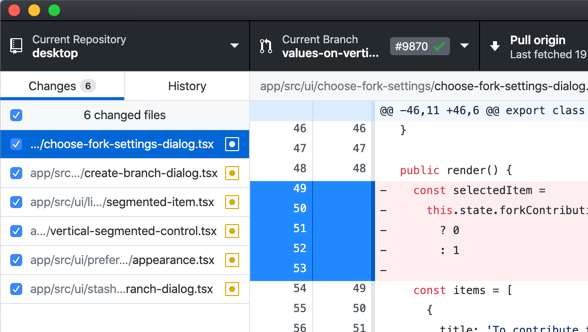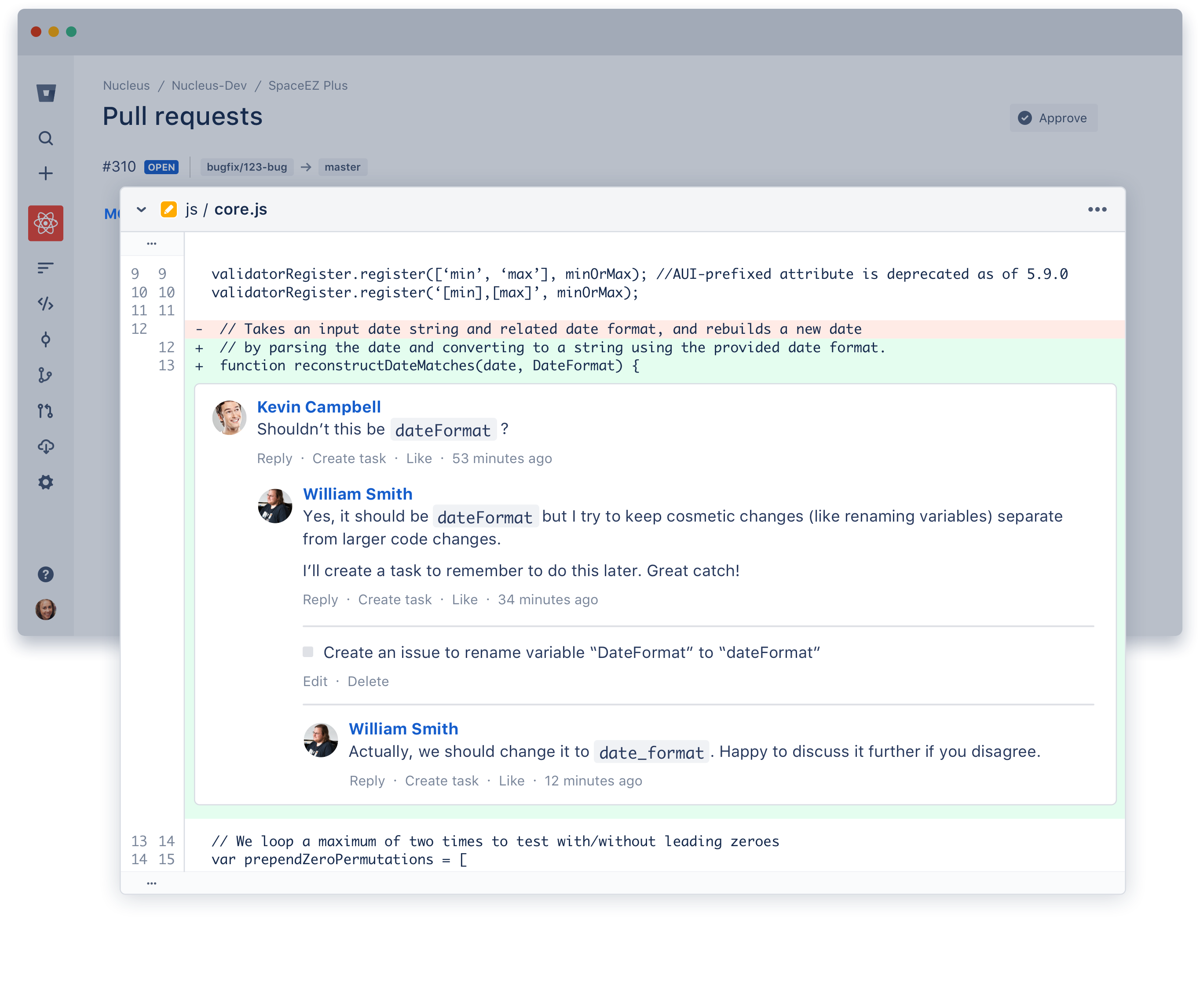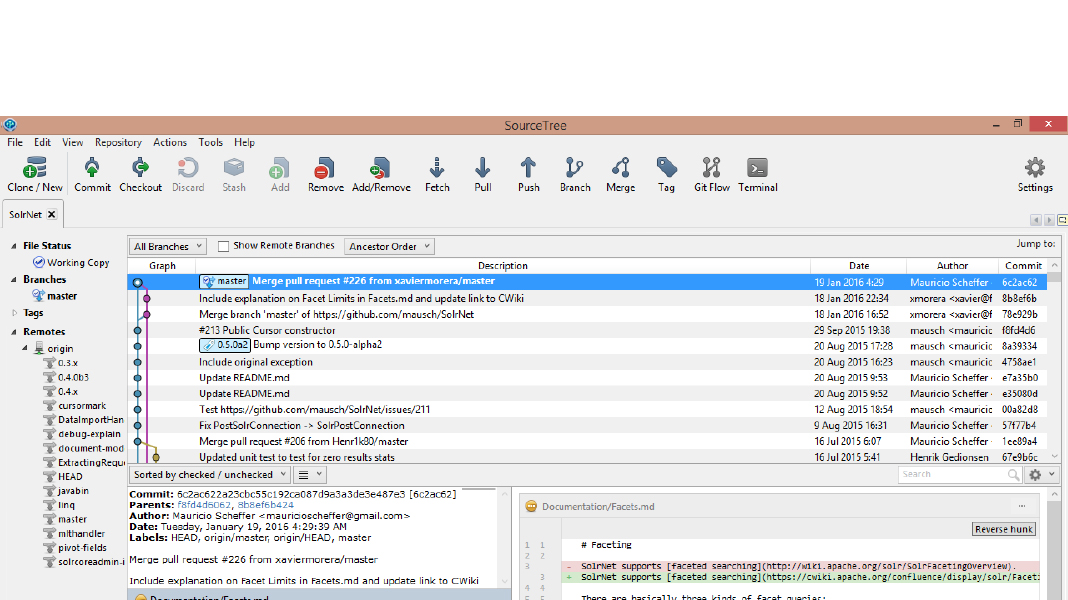
- GIT GUI CLIENT MANAGE BRANCHES UPDATE
- GIT GUI CLIENT MANAGE BRANCHES FULL
- GIT GUI CLIENT MANAGE BRANCHES SOFTWARE
- GIT GUI CLIENT MANAGE BRANCHES CODE
- GIT GUI CLIENT MANAGE BRANCHES FREE
Older version, yet still maintained: 2.26 Older version, yet still maintained: 2.25 Older version, yet still maintained: 2.24 Older version, yet still maintained: 2.23 Older version, yet still maintained: 2.22 Older version, yet still maintained: 2.21 Older version, yet still maintained: 2.20 Older version, yet still maintained: 2.19 Older version, yet still maintained: 2.18 Older version, yet still maintained: 2.17 "Goddamn idiotic truckload of sh*t": when it breaks.Angels sing, and a light suddenly fills the room. "Global information tracker": you're in a good mood, and it actually works for you.Take your pick from the dictionary of slang. The fact that it is a mispronunciation of "get" may or may not be relevant. Random three-letter combination that is pronounceable, and not actually used by any common UNIX command."git" can mean anything, depending on your mood.
GIT GUI CLIENT MANAGE BRANCHES CODE
The read-me file of the source code elaborates further: First ' Linux', now 'git'." The man page describes Git as "the stupid content tracker". Torvalds sarcastically quipped about the name git (which means "unpleasant person" in British English slang): "I'm an egotistical bastard, and I name all my projects after myself.

Hamano was responsible for the 1.0 release on 21 December 2005 and remains the project's core maintainer.

Torvalds turned over maintenance on 26 July 2005 to Junio Hamano, a major contributor to the project. On 16 June, Git managed the kernel 2.6.12 release. Torvalds achieved his performance goals on 29 April, the nascent Git was benchmarked recording patches to the Linux kernel tree at the rate of 6.7 patches per second. The first merge of multiple branches took place on 18 April. Torvalds announced the project on 6 April and became self-hosting the next day. The development of Git began on 3 April 2005. These criteria eliminated every version-control system in use at the time, so immediately after the 2.6.12-rc2 Linux kernel development release, Torvalds set out to write his own.
GIT GUI CLIENT MANAGE BRANCHES UPDATE
Torvalds cited an example of a source-control management system needing 30 seconds to apply a patch and update all associated metadata, and noted that this would not scale to the needs of Linux kernel development, where synchronizing with fellow maintainers could require 250 such actions at once.
GIT GUI CLIENT MANAGE BRANCHES FREE
Linus Torvalds wanted a distributed system that he could use like BitKeeper, but none of the available free systems met his needs.

The same incident also spurred the creation of another version-control system, Mercurial. The copyright holder of BitKeeper, Larry McVoy, had withdrawn free use of the product after claiming that Andrew Tridgell had created SourcePuller by reverse engineering the BitKeeper protocols. Git development began in April 2005, after many developers of the Linux kernel gave up access to BitKeeper, a proprietary source-control management (SCM) system that they had been using to maintain the project since 2002.
GIT GUI CLIENT MANAGE BRANCHES SOFTWARE
Git is free and open-source software distributed under the GPL-2.0-only license.
GIT GUI CLIENT MANAGE BRANCHES FULL
As with most other distributed version control systems, and unlike most client–server systems, every Git directory on every computer is a full-fledged repository with complete history and full version-tracking abilities, independent of network access or a central server. Since 2005, Junio Hamano has been the core maintainer.

Git was originally authored by Linus Torvalds in 2005 for development of the Linux kernel, with other kernel developers contributing to its initial development. Its goals include speed, data integrity, and support for distributed, non-linear workflows (thousands of parallel branches running on different systems). Git ( / ɡ ɪ t/) is software for tracking changes in any set of files, usually used for coordinating work among programmers collaboratively developing source code during software development. POSIX ( Linux, macOS, Solaris, AIX), Windows


 0 kommentar(er)
0 kommentar(er)
